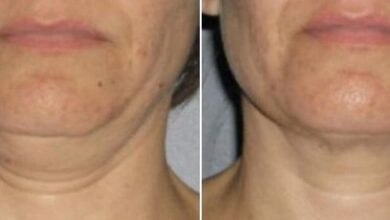The Role Of Collagen In Wound Healing: What You Need To Know

Collagen is one of the most important proteins in the human body, responsible for providing strength and structure to our skin, bones, tendons, and other tissues. But it’s also vital for helping us heal from wounds and injuries. By understanding more about how collagen works in wound healing, we can better equip ourselves to take care of our bodies and help them recover faster. In this blog post, we’ll dive into the role of collagen in wound healing and explore what you need to know about this important protein. From its functions to potential treatments and more, read on for a full exploration of collagen and wound healing.
What is collagen in wound healing?
Collagen in wound healing is a protein that is found in the skin, tendons, and other connective tissues. It plays an important role in healing by providing strength and support to the healing process.
The body produces collagen in response to injury. When the body’s collagen levels are low, wound healing can be delayed. In some cases, supplements or injections of collagen can be used to speed up the healing process.
Collagen provides strength and support to the skin and connective tissues. It helps to repair damaged tissue and promotes new tissue growth. Collagen also plays an important role in maintaining the skin’s elasticity.
As we age, our bodies produce less collagen. By using products that contain collagen, we can help to minimize these effects and keep our skin looking young and healthy.
What role does play in wound healing?
As we age, our bodies produce less collagen, which can lead to a decrease in wound healing. Collagen is a key protein in the body that helps to form new tissue and repair damaged tissue. It is found in the skin, bone, and connective tissues. When wounds occur, the body signals for collagen to be produced in order to repair the damage.
Collagen plays an important role in healing by providing the scaffolding that new cells need to grow and proliferate. It also helps to reduce inflammation and promote healing by stimulating the production of other important proteins and molecules needed for repair. Additionally, collagen contributes to the formation of new blood vessels, which are essential for delivering oxygen and nutrients to the wound site.
The different types of collagen
There are four primary types of collagen: Type I, II, III, and IV. Each type is made up of different combinations of the amino acids glycine, proline, hydroxyproline, and arginine. The types of collagen vary in their abundance in different tissues throughout the body. Type I collagen is the most abundant, making up 90-95% of the collagen in the body. Type II collagen is found in cartilage and makes up about 5% of all collagen in the body. Type III collagen is found in reticular fibers and makes up about 5% of all collagen in the body. It provides support for blood vessels and organs. Type IV collagen is found in basement membranes and helps to keep cells together.
Foods that contain collagen
Collagen is a protein found in the connective tissues of animals, and it’s what gives skin its elasticity. It’s also present in bone and cartilage, and plays an important role in wound healing.
When your skin is wounded, collagen works with other proteins to form a scaffold that helps new cells grow and repair the damage. This process is essential for wound healing, and collagen plays a key role.
There are many foods that contain collagen, including bone broth, fish, chicken, eggs, and some varieties of fruit. You can also take collagen supplements to boost your levels of this important protein.
Supplements containing collagen
There are a number of supplements on the market that contain collagen, and the manufacturers of these products claim that they can help with wound healing. But what does the science say?
A review of the available evidence concluded that there is not enough evidence to support the use of collagen supplements for wound healing. However, the authors of this review did note that collagen supplements may have some potential benefits, such as reducing inflammation and promoting cell growth.
So, while the jury is still out on whether or not collagen supplements can help with wound healing, it appears that they may offer some benefits. If you’re considering taking a collagen supplement, be sure to speak with your doctor first to see if it’s right for you. Read more…
Conclusion
In conclusion, collagen in wound healing has been demonstrated to be a major role in wound healing through multiple studies. Collagen is necessary for the formation of new skin cells and helps increase the strength of newly formed tissue. Through its many roles, collagen provides an important foundation for the processes involved with effective wound healing. With this knowledge in mind, it is clear that collagen can play an essential role in successful wound healing.




